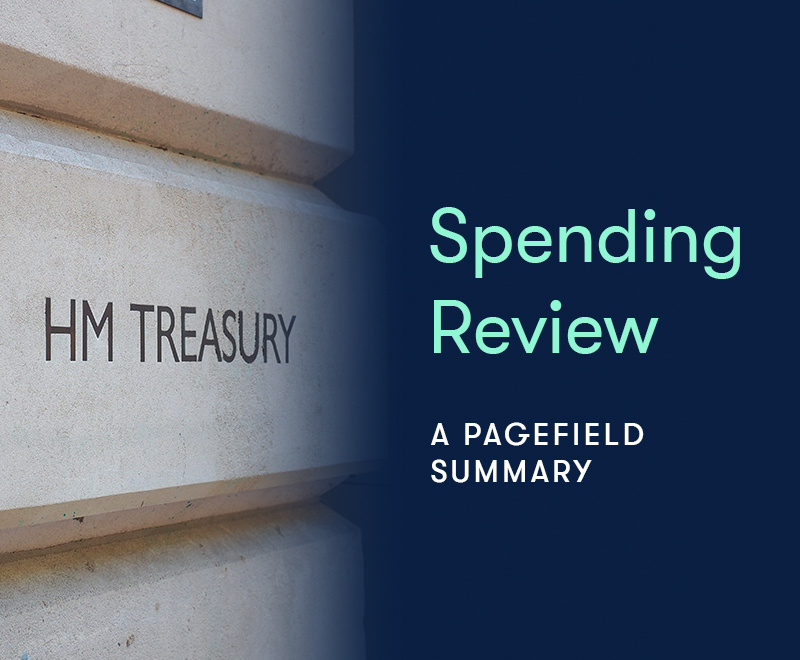In the same week that 50 of the Tory “Red Wall” MPs revolted against the Prime Minister over the lack of a roadmap out of lockdown, we were joined by none other than Deborah Mattinson, co-founder of Britain Thinks and author of Beyond the Red Wall: Why Labour Lost, How the Conservatives Won and What Will Happen Next?
As the battle continues, here are five things that we learnt.
- Johnson is the personification of disappointment for red wall voters
While Deborah believes that Boris Johnson was the key factor in turning the red wall blue, their disappointment in the Government is apparently palpable. Despite the many commitments this Government has made to “levelling up” and reviving the fortunes of the UK’s “left behind cities”, few are to yet get off the ground with local lockdowns providing an extra, significant hurdle.
Having interviewed people within the “left behind” areas for her book, Deborah explained that many saw this as a zero-sum game in which the South East, and in particular London, will have to get worse before they can get better.
- Boris is a sheep while Keir is an eagle
Deborah explained that when she revisited red wall seats in recent weeks she found a common narrative in the descriptions of the Prime Minister and the Leader of the Opposition. When she used the focus group projective technique ‘if this politician were an animal…’ Boris Johnson was often described as a sheep. He’s now seen as aimless, chasing a series of different audiences with a lack of communication and clarity; a stark difference from the powerful simplicity of ‘Get Brexit Done’ which won the votes of many in that part of the country.
Starmer on the other hand was described as an eagle. While this may seem a more favourable comparison, Deborah highlighted how Starmer’s leadership and scrutiny of the Government seemed somewhat detatched: similar to an eagle as he circles above the fray and creates a level of distance between him and his prey, rather than directly attacking.
- It was the Labour Party that lost rather than the Tories winning
Although winning the red wall was a momentous achievement that defined Johnson’s victory in 2019, Deborah explained that loyal Labour voters’ disenfranchisement with the Party had been brewing for a long time. Referencing the many she interviewed for her book, Deborah shared that the Labour Party had turned into the home for the liberal, metropolitan elite who ate quinoa, had degrees and hated Brexit; a feeling that was turbo-charged by Jeremy Corbyn.
While the Conservative Party by no means became “the party for the people” during this period, unlike Labour, the Tories had not changed their image. Instead, Boris campaigned on the value and importance of their leave votes at the referendum, while many incumbent Labour MPs continued to rally against Brexit without listening to their constituents.
- The roll-out of the vaccine will be the most important moment when Boris must be clear
Deborah echoed one of the main criticisms of the Government’s handling of the pandemic which was the lack of clarity and communication. She cited how this was personified by Cummings’ trip to Barnard Castle which coincided with people’s trust in the Government beginning to tumble.
While the battle continues, Deborah stressed that (when) the roll-out of the vaccine happens, the Government’s communication will have to be crystal clear. The fogged messaging has been a recurring calamity in the Government’s handling of the pandemic and while it needs to improve in any case, the handling of the vaccine roll-out will be integral to ensure any restoration of normality and recovery.
- Covid provides an opportunity for change for the better
While Deborah explained how Britain Thinks’ recent ‘Mood of the Nation’ survey found that the people of the UK have never been so divided and that there was a significant amount of pessimism felt across the country, she also noted how Covid has sparked an urge for change.
The survey found that only 9% wanted the world to return to its pre-Covid state and the remaining 91% want to see real change, opportunity and a sense that “something good has come out of the crisis.”
Beyond the Red Wall is published by Biteback
https://www.amazon.co.uk/Beyond-Red-Wall-Deborah-Mattinson/dp/1785906046



